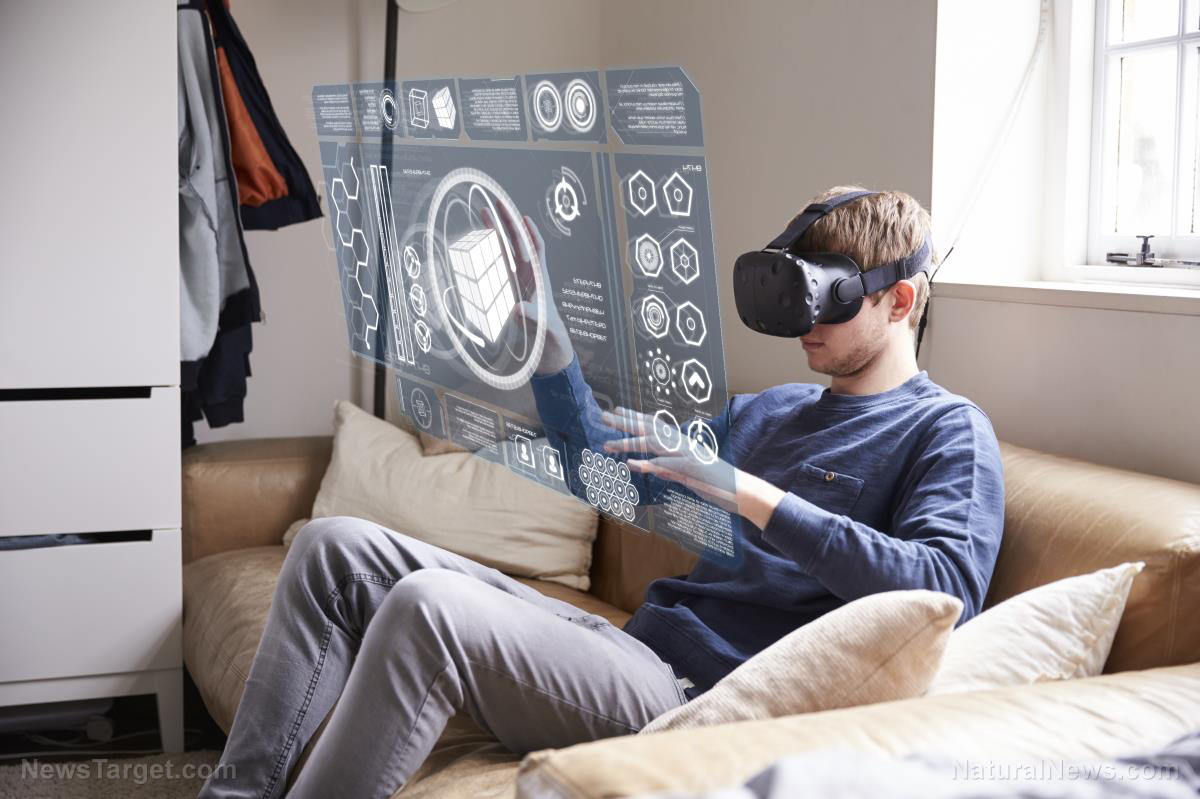Virtual escape: Hospital in-patients using VR to alleviate boredom, stress, pain
04/26/2018 / By Rhonda Johansson

The medical industry is attempting to immerse itself in virtual reality (VR) technology in the hopes that it will improve patient outcomes. From remote surgeries to VR medical learning, the technology appears to have a variety of applications in health care. A more recent use found is using VR as a distraction tool for patients undergoing major surgery. Doctors believe that patients who find themselves in a three-dimensional, computer-generated world will be less scared and anxious pre- and post-operation. This absence of fear — indeed, perhaps even an increased feeling of calm — is hypothesized to hasten the recovery process as well.
A recent review article on the subject, published in The Clinical Journal of Pain, concluded just as much. Medical experts who use VR saw that patients undergoing painful and stressful medical procedures, such as chemotherapy, surgery, and dental treatments to name a few, experienced less pain if they played a VR game before and after their operation.
“Moreover, VR decreases cancer-related symptoms in different settings, including during chemotherapy,” enthused Antonio Giordiano, M.D., Ph.D., who was a corresponding author of the study. “This is remarkable, considering that identifying interventions able to enhance treatment tolerance is crucial to improve both patient’s quality of life and compliance to therapies, which, in turn, can increase their chances of recovery.” (Related: After a stroke, brain exercise is key: Virtual reality training found to be effective supplemental therapy for regaining movement.)

All the same, the authors of the review caution the public in overestimating the benefits of VR technology. These results are encouraging but need to be further validated with more studies. Scientists say that they need to establish predictive factors to select patients who would most benefit from VR technology.
Augmented health care…in more ways than one
VR technology allows the user to become actively engaged in a simulated environment. Doctors are using this technology to improve the chance of success of various medical procedures. This includes using different types of VR, including mixed reality and augmented reality. As more healthcare apps are being developed, it has become all the more important for you to understand just how and where these innovations are taking us.
- Training — More surgeons are being trained with VR programs. Well-known universities are leveraging the technology to teach new students and keep the skills of working professionals sharp. These “hands-on” training programs can include a surgical simulation environment that has a physical model of a patient. Surgeons would then use endoscopic cameras and other tools to diagnose the model as they would a real person.
- Remote surgery — VR could also allow surgeons to “interact” with each other, even if they’re in two different hospitals or even countries. Because surgery is a highly specialized skill, health care could be improved if patients had access to better doctors. VR could have surgical specialists perform an operation without having to travel.
- Treatment — Quite recently, the National Institute of Health Research (NIHR) gave a multi-million British Pound grant to various National Health Service (NHS) trusts to use VR as a supplemental mental health treatment. Here, patients will be placed inside a virtual world with a coach that would guide them through various scenarios. It is hoped that this would help the patients deal with real-life scenarios better.
Read more stories about virtual reality and its potential applications in the medical industry at Research.news.
Sources include:
Submit a correction >>
Tagged Under:
alternative pain treatment, Augmented Reality, brain health, distraction tool, healthcare, healthcare coverage, medical inudstry, medical tech, mental health, mind body science, mixed reality, research, surgical operations, Virtual reality, virtual reality technology, VR technology, VR training
This article may contain statements that reflect the opinion of the author





















